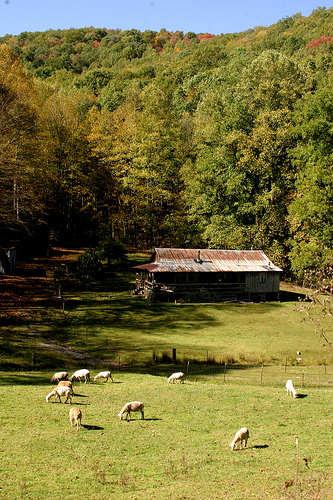
Last week’s fiscal cliff deal included a nine-month extension for the Farm Bill. While the deal doesn’t provide mandatory funding to energy programs in the Farm Bill, it does extend most conservation provisions that are already (or set to be) expired, like the Wetlands Reserve Program and Healthy Forests Reserve Program. Other programs like EQIP, WHIP and CSP were already authorized through 2014 in a continuing resolution and were not set to expire. Even though these programs will continue to manage existing projects, they will not be able to enroll new participants due to lack of additional funding. The Conservation Stewardship Program (CSP), for example, is currently working on projects across the country on approximately 50 million acres of land and was authorized to enroll an additional 12.8 million acres in 2013 under the 2008 Farm Bill. The program was established to help farmers and ranchers carry out conservation plans on their land, but without additional funding in the fiscal cliff deal, enrollment has been reduced to only one million acres in 2013.
Representative Tim Waltz (D-MN) expressed disappointment with the Farm Bill extension in the fiscal cliff deal to news outlet E&E News. A long-time champion for farmland conservation programs, Waltz commented that conservation programs need long-term planning to be successful, unlike the short-term solutions currently being offered by Congress.
Federal agencies are also disappointed. USDA Secretary Tom Vilsack stated that he is pleased to see an extension included in the deal, but frustrated that Congress was unable to pass a multi-year Farm Bill. Vilsack remains committed to working with Congress to pass a reauthorized five-year bill. Waltz and Vilsack’s stance is shared by many in the conservation community who understand the importance of a five-year bill. Last year, the Senate and the House Agriculture Committees passed a five-year measure that would have streamlined conservation programs and cut back funding, but for the most part, conservation groups were on board. Even though overall spending would have been cut, conservation leaders were pleased to see bipartisan support on a measure that would extend the conservation programs tools that are so important to landowners. The fiscal cliff deal ignored these efforts and created an extension that did not help conservation programs.
American Forests has been a strong advocate for funding forest and conservation programs in the Farm Bill as part of the Forests in the Farm Bill Coalition (FIFB). The coalition will continue to push for a five-year Farm Bill. As far as next steps for Congress, the House has tentatively set a Farm Bill mark-up hearing for February 27th. I hope that with the new session (and new members) of Congress comes change and progress for the Farm Bill and its conservation programs.